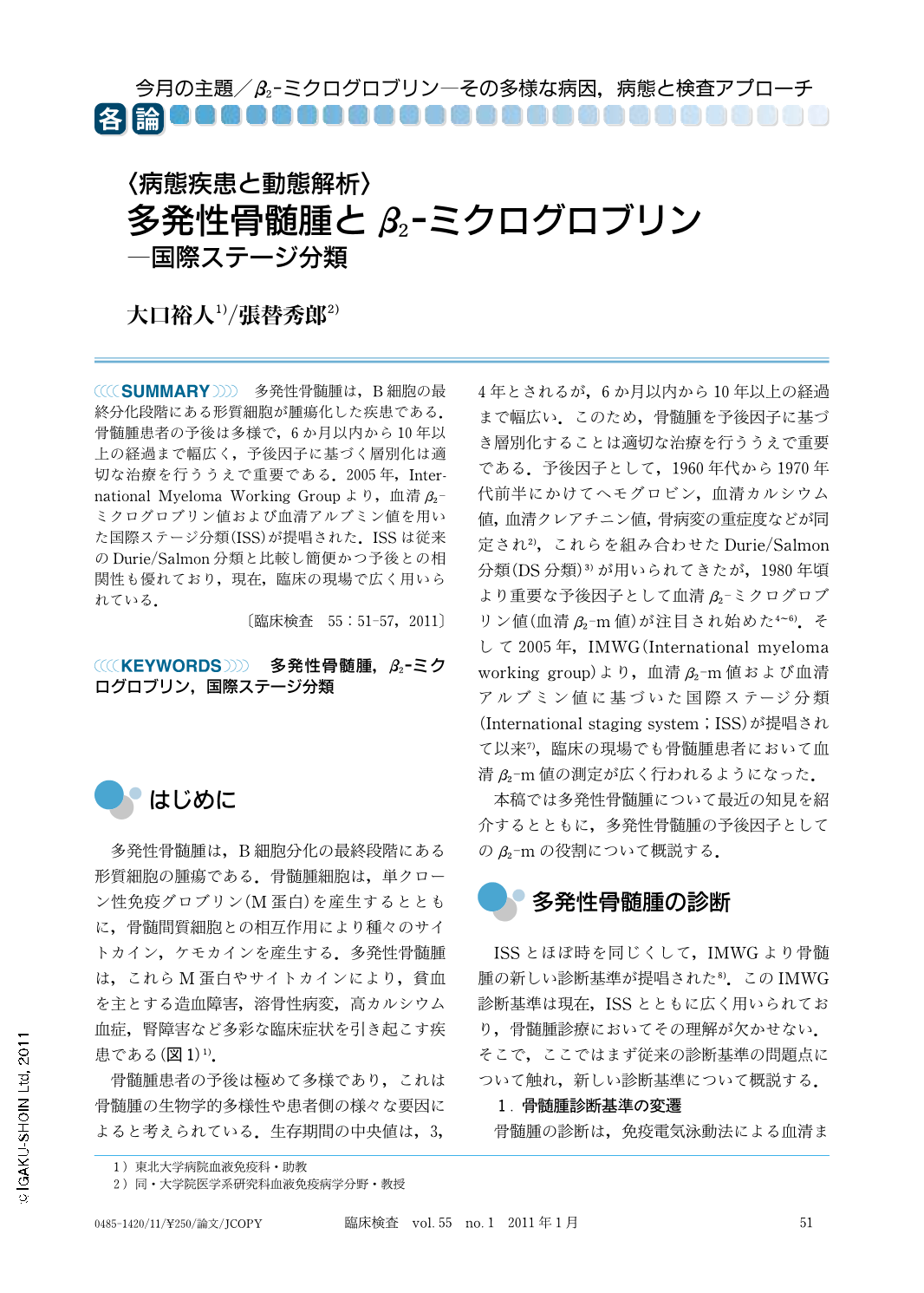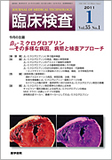Japanese
English
- 有料閲覧
- Abstract 文献概要
- 1ページ目 Look Inside
- 参考文献 Reference
多発性骨髄腫は,B細胞の最終分化段階にある形質細胞が腫瘍化した疾患である.骨髄腫患者の予後は多様で,6か月以内から10年以上の経過まで幅広く,予後因子に基づく層別化は適切な治療を行ううえで重要である.2005年,International Myeloma Working Groupより,血清β2-ミクログロブリン値および血清アルブミン値を用いた国際ステージ分類(ISS)が提唱された.ISSは従来のDurie/Salmon分類と比較し簡便かつ予後との相関性も優れており,現在,臨床の現場で広く用いられている.
Multiple myeloma is a malignant neoplasm characterized by proliferation of monoclonal plasma cells. It is a heterogeneous disease with variable outcomes driven by biologic characteristics. Because overall survival ranges from less than 6 months to more than 10 years, prognostic stratification is important. The International Staging System (ISS) stratifies myeloma patients into three stages based on the combination of serum β2-microglobulin with albumin. The ISS is simpler, and is a more powerful prognostic classification compared with the Durie/Salmon system and has now been widely adopted.

Copyright © 2011, Igaku-Shoin Ltd. All rights reserved.


